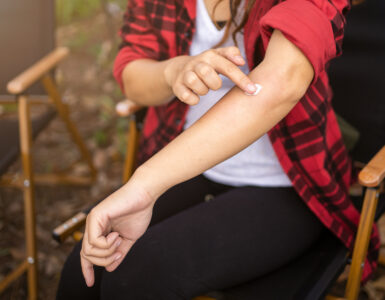Dan Barton with Taylor HealthMart Drug in American Fork comes to Studio 5 with important facts from an October 16, 2007 Mayo Clinic article:
____________________________________________________________
The dangers of not washing your hands
Infectious diseases that are commonly spread through hand-to-hand contact include the common cold, flu and several gastrointestinal disorders, such as infectious diarrhea. While most people will get over a cold, the flu can be much more serious. Some people with the flu, particularly older adults and people with chronic medical problems, can develop pneumonia. The combination of the flu and pneumonia, in fact, is the eighth-leading cause of death among Americans.
Inadequate hand hygiene also contributes to food-related illnesses, such as salmonella and E. coli infection. According to the Centers for Disease Control and Prevention (CDC), as many as 76 million Americans get a food-borne illness each year. Of these, about 5,000 die as a result of their illness. Others experience the annoying signs and symptoms of nausea, vomiting and diarrhea.
Proper hand washing with soap and water
Follow these instructions for washing with soap and water:
• Wet your hands with warm, running water and apply liquid soap or use clean bar soap. Lather well.
• Rub your hands vigorously together for at least 15 to 20 seconds.
• Scrub all surfaces, including the backs of your hands, wrists, between your fingers and under your fingernails.
• Rinse well.
• Dry your hands with a clean or disposable towel.
• Use a towel to turn off the faucet.
Proper use of an alcohol-based hand sanitizer
Alcohol-based hand sanitizers — which don’t require water — are an excellent alternative to hand washing, particularly when soap and water aren’t available. They’re actually more effective than soap and water in killing bacteria and viruses that cause disease. Commercially prepared hand sanitizers contain ingredients that help prevent skin dryness. Using these products can result in less skin dryness and irritation than hand washing.
Not all hand sanitizers are created equal, though. Some “waterless” hand sanitizers don’t contain alcohol. Use only the alcohol-based products. The CDC recommends choosing products that contain at least 60 percent alcohol.
To use an alcohol-based hand sanitizer:
• Apply about 1/2 teaspoon of the product to the palm of your hand.
• Rub your hands together, covering all surfaces of your hands, until they’re dry.
If your hands are visibly dirty, however, wash with soap and water, if available, rather than a sanitizer.
When should you wash your hands?
Although it’s impossible to keep your bare hands germ-free, there are times when it’s critical to wash your hands to limit the transfer of bacteria, viruses and other microbes.
Always wash your hands:
• After using the toilet
• After changing a diaper — wash the diaper-wearer’s hands, too
• After touching animals or animal waste
• Before and after preparing food, especially before and immediately after handling raw meat, poultry or fish
• Before eating
• After blowing your nose
• After coughing or sneezing into your hands
• Before and after treating wounds or cuts
• Before and after touching a sick or injured person
• After handling garbage
• Before inserting or removing contact lenses
• When using public restrooms, such as those in airports, train stations, bus stations and restaurants
Kids need clean hands, too
You can help your children avoid getting sick by insisting that they wash their hands properly and frequently. To get kids into the habit, teach by example. Wash your hands with your children and supervise their hand washing. Place hand-washing reminders at children’s eye level, such as a chart by the bathroom sink for children to mark every time they wash their hands. Make sure the sink is low enough for children to use, or that it has a stool underneath so that children can reach it. Tell your children to wash their hands for as long as it takes them to sing their ABCs, “Row, Row, Row Your Boat” or the “Happy Birthday” song. This works especially well with younger children, who may rush when washing their hands.
Older children and adolescents also can use alcohol-based hand sanitizers. Younger children can use them, too — with an adult’s help. Just make sure the sanitizer has completely dried before your child touches anything. This will avoid ingestion of alcohol from hand-to-mouth contact. Store the container safely away after use.
Hand washing is especially important for children who attend child care. Children younger than 3 years in child care are at greater risk of respiratory and gastrointestinal diseases, which can easily spread to family members and others in the community.
To protect your child’s health, be sure your child care provider promotes sound hygiene, including frequent hand washing or use of alcohol-based hand sanitizers. Ask whether the children are required to wash their hands several times a day — not just before meals. Note, too, whether diapering areas are cleaned after each use and whether eating and diapering areas are well separated.
____________________________________________________________________________
HealthMart Pharmacies are locally owned community pharmacies, offering the special care and service you can only get from a member of your community. Visit Taylor HealthMart Drug, 76 North 1100 East in American Fork. Call (801) 756-4021















Add comment